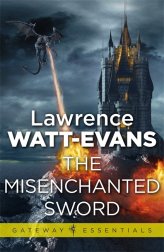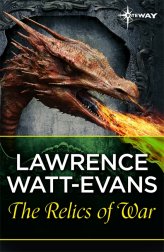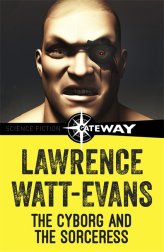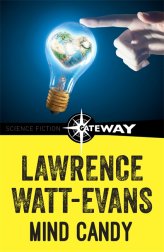Well, now that I’ve published Tom Derringer and the Aluminum Airship, I’m working on a sequel. Which means I have yet another opening scene to post here, and here it is.
Warning: There are spoilers here! If you don’t want to know anything about how Tom Derringer and the Aluminum Airship comes out, you might want to skip this.
I first heard the name Gabriel Trask from a self-proclaimed emperor in the skies above southern Mexico, in the year 1882. I was sixteen, almost seventeen, at the time, and newly commenced upon a career as an adventurer – an occupation which, curious as it may seem, is my family trade.
That conversation took place aboard a gigantic airship, where I had confronted a would-be conqueror by the name of Hezekiah McKee. I was there entirely of my own initiative, but Mr. McKee did not believe that; he was quite certain I was in the pay of one of his old enemies, and named this Gabriel Trask as the most likely candidate.
I had, as I said, never heard of Mr. Trask before that moment. Had McKee survived those events, I would have liked to have questioned him about this person, but I regret to say that Mr. McKee did not survive. My curiosity remained utterly unsatisfied until some months later, after my safe return to New York City.
I had business to conduct there with Dr. John Pierce, proprietor of the Pierce Archives, concerning certain details of my Mexican adventure, and when I had concluded that more or less to my satisfaction, I asked him, “What can you tell me about Gabriel Trask?”
“Trask?” he replied. “The name does not immediately bring anything to mind. Where did you encounter it?”
“When I confronted Reverend McKee, he supposed that I was working for this Trask,” I explained. “He said that Gabriel Trask employed a cabal of spies and assassins, and was not to be trusted, but that was all I learned. The circumstances were such that I could not inquire for more details.”
Dr. Pierce nodded. “I see,” he said. “Let me see what I can turn up.” He rose and crossed to a wooden cabinet.
We were, I should explain, in his private office, at the rear of the Pierce Archives. This unique establishment occupied the entire second floor of a very large building on Lafayette Street in New York City, and housed the most complete records anywhere of the doings of adventurers past and present. Here were copies of virtually every treasure map to ever come to light, along with notes on whether the treasure in question had been recovered or yet remained to be found; here, also, were reports on every villain apprehended, every monster slain, by any of Dr. Pierce’s clients – or those catered to by his father, or his grandfather, or their fathers, for the Pierce Archives had been in operation for some three hundred years. Here was gathered the accumulated knowledge of scientists and mystics of every stripe. If knowledge that would be of use to an adventurer was to be found anywhere in the civilized world, it was most probably here in the Pierce Archives.
I had traded the right to copy my late father’s journals for a full membership and free use of the Archives, and that included the services of the archivist himself, Dr. Pierce, and his employees. If I wanted information on Gabriel Trask, then any information there might be about such a man in the Archives I would have.
Thus I sat and watched as Dr. Pierce pulled out a drawer and shuffled through the folders therein. After a moment’s search he slid the drawer closed and said, “He has never been a client here – at least, not under that name. Come, let us check the cross references.”
I rose and followed as he led the way out into the main room, where what seemed like miles of shelving held hundreds, perhaps thousands, of books, ledgers, journals, and file boxes of various sizes, as well as innumerable stacks of loose documents.
I would have had no idea where to begin, but Dr. Pierce was the master of this vast domain of paper and ink; he led me directly to a high shelf where dozens of leather-bound volumes stood.
I am not a short man; I stand only a little below six feet in height. Even so, this shelf was above my head, and I am not certain I could have reached those books. Dr. Pierce, however, is a man of extraordinary stature; by lifting up on his toes he could read the spines, and he had no trouble in selecting the tome he wanted and pulling it out.
A white label on the cover read TRAB – TREA, and I glanced up at its companions. If this fat book covered so small a portion of the alphabet, that explained why the complete set ran fifty feet or more along that shelf.
I watched as Dr. Pierce set the book on a reading stand and flipped it open. He made no attempt to conceal the pages, so I took the liberty of reading over his shoulder – figuratively, for in fact he was tall enough that I instead leaned around his side.
The content was hand-written, and unevenly spaced; I realized that these records were still being kept, and that space had been allowed for future entries. I watched Dr. Pierce as he turned pages until he finally found the entry he sought.
“Trask, Gabriel A.,” he read aloud. “See Norton, Joshua, Emperor.” He glanced at me. “Are you familiar with the late Emperor Norton?”
“I have heard of him,” I said. “But he’s been dead for some time, hasn’t he?”
Dr. Pierce nodded. “More than two years now.”
“Was he Gabriel Trask? I don’t understand. McKee must have known he was dead.”
“Oh, I wouldn’t be too certain of that,” Dr. Pierce replied. “After all, McKee spent most of that time since the Emperor’s death out in the Arizona desert, building that monstrous airship. But no, Gabriel Trask and Emperor Norton are not one and the same. Let us see what the connection was.” With that he restored the volume to its place on the top shelf, then led the way to another part of his establishment. Here he readily located, presumably from memory because he did not bother to read any of the labels pasted on the leather spines, another set of journals – perhaps a dozen fat volumes, on a shelf at waist height. He drew out the last of these, opened it seemingly at random, and began thumbing through the pages.
I waited patiently until at last he found what he sought. He nodded to himself, then peered over the book at me.
“It appears that Mr. Trask was in His Imperial Majesty’s employ. According to this, Mr. Trask was rumored to be the head of the late emperor’s secret service.”
“Emperor Norton had a secret service?” I exclaimed. “But I thought his claim to be emperor was a joke, the ravings of a lunatic that the people of San Francisco found it amusing to humor!”
Dr. Pierce smiled a dry and humorless smile. “In time I think you may find, Mr. Derringer, that the distinction between a madman’s fantasy and the real world is not always as clear-cut as one might expect. Emperor Norton was indeed mad, or at least so everyone believes, but his delusional reign endured for more than twenty years, and in that time it acquired some of the characteristics of a real government. This man Trask attended His Majesty intermittently for over a decade, and the circumstances surrounding these meetings led more than one observer to conclude that Mr. Trask was the emperor’s spymaster.”
“But then…” I struggled to make sense of this. “Then had McKee run afoul of our self-proclaimed emperor? He gave no indication of this.”
Dr. Pierce slid the book back into its place on the shelf. “I have no idea,” he said. “I cannot say with certainty that the man associated with Emperor Norton is the same Gabriel Trask to whom McKee referred. I can only report that I have no other records of anyone by that name.” He tapped the spine of the journal. “This tells me that there were more than a dozen reports of a man calling himself Gabriel Trask keeping company with His Majesty, and that two of my correspondents – a woman named Felicity Samuels, and a young man who goes by John Cavendish – independently surmised that Mr. Trask was in charge of at least some of the emperor’s confidential agents.”
“I still find it astonishing that the emperor had any confidential agents!”
Dr. Pierce smiled again. “Perhaps he did not. Perhaps Miss Samuels and Mr. Cavendish were mistaken. I am amused, though, that you find it so unlikely, given your own recent experiences.”
“And you have no other references to a Gabriel Trask?”
“If I do, they have not yet been indexed, and I cannot hope to find them for you any time soon.”
 Orion’s ebooks appeared a couple of weeks ago, under the Gateway imprint, and I finally got around to checking ’em out to see what they did.
Orion’s ebooks appeared a couple of weeks ago, under the Gateway imprint, and I finally got around to checking ’em out to see what they did. First off, they have two titles wrong — they call Relics of War The Relics of War, which is not the title, and have transformed The Cyborg and the Sorcerers into The Cyborg and the Sorceress.
First off, they have two titles wrong — they call Relics of War The Relics of War, which is not the title, and have transformed The Cyborg and the Sorcerers into The Cyborg and the Sorceress. Third, they call Mind Candy, a collection of essays, “science fiction.” I didn’t expect them to publish it at all, since it’s all about American pop culture.
Third, they call Mind Candy, a collection of essays, “science fiction.” I didn’t expect them to publish it at all, since it’s all about American pop culture. And fourth, they have put a dragon on every single cover except the two “science fiction” titles, The Cyborg and the “Sorceress” and Mind Candy. No cover is even remotely connected to the actual contents of the book. Some of them are very pretty, but still.
And fourth, they have put a dragon on every single cover except the two “science fiction” titles, The Cyborg and the “Sorceress” and Mind Candy. No cover is even remotely connected to the actual contents of the book. Some of them are very pretty, but still.
The Five Latest Comments